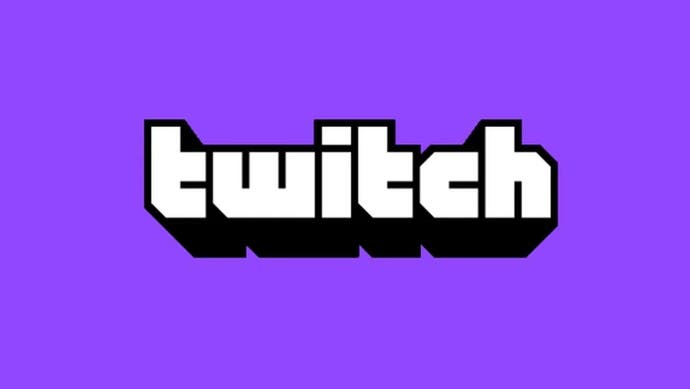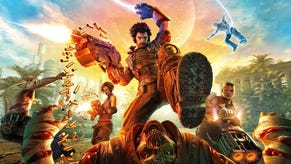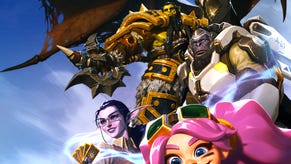Accessibility on Twitch: the complications of streaming
How can Twitch better support disabled streamers?
Last month, a new post on the Twitch UserVoice forum requested for a Disability Pride Month. It's something that's celebrated for other minority groups, but is yet to be implemented on the streaming platform for the disability community.
In under a month, the post has received over 1100 votes, with plenty of comments from disabled streamers in support.
So far, Twitch has celebrated Global Accessibility Awareness Day in May for the past two years. This has included highlighting disabled streamers and talks with top Twitch creators, as well as offering guides on education and advocacy.
But could Twitch be doing more to support disabled streamers? How does being disabled on Twitch impact streaming?
It's important to note that having a disability is incredibly personal and experiences on Twitch will differ from person to person. What's discussed in this article is by no means exhaustive. But there are some common experiences.
As with all streamers, the process begins with choosing a game to stream. For disabled streamers, even that can be fraught.
"If you want to be successful on Twitch, you have to play certain kinds of games," says Steve Spohn, streamer and senior director of AbleGamers. There are always certain games that are bound to be popular on the platform - the likes of GTA, Fortnite and Minecraft.
"For me, I get to have considerations, like 'is this accessible? Oh, it's not, oh well' and then I'll just go and play something else."
That means discovering whether a game is even accessible in the first place, which can be a "heartbreaking" process. Spohn, for instance, missed out on Animal Crossing because the Switch isn't accessible to him.
"I kind of missed the entire thing, didn't get to use it on my channel, didn't get to really get into it and be part of that world. So that's kind of the way it comes into play: if you're disabled it is less about what you can [play] and more about what you're missing out on.
"I think for people with disabilities, just speaking for myself, the fear of missing out can be a little bit stronger for us."
For SightlessKombat, a streamer without sight, key accessibility features like menu and UI narration, navigation and traversal assistance features, and full aim assist are just a few options that can have a major impact on whether a game can be played.
"[Without these features] you end up feeling like the genres you can play and enjoy are limited as well, in that you are only able to play console or PC titles that have enough accessibility or via brute force and patience, which should never be the case and reduce how much fun you can have compared to sighted players," he says.
Spohn also mentions the cognitive dissonance of prejudging a game to not be playable. "I absolutely love Rocket League," he says. "I think it's the best game that has ever been made, once I figured out how I could play it. When my brain looked at it and went 'there's no way I can do that' I immediately slammed the gate on it and went 'now that's a bad game, not interested'. Because my brain is protecting me, my brain is going 'he's not gonna be able to do that. So let's not make him interested in it'".
Alongside (sometimes limited) accessibility reviews and Spohn's own AbleGamers platform, Twitch streams can actually be a valuable resource to witness whether a game is accessible.
"The great part about Twitch is that if you're disabled you get to watch not only other disabled people play but able bodied people and see how they navigate a game and what they do," says Spohn. "And you can kind of get a better feel for whether or not you might have a chance at adapting it to your needs."
It works the other way too, with Spohn able to advise other players from his stream. "It's amazing how many tweets I've gotten over the years from, you know, 'hey, you told me in stream offhandedly to go check out this website, and I've been playing Dark Souls for the last three weeks'. It's amazing and it feels really good when you can just give someone some advice from what you think might help them and it turns out that it works."
For some disabled streamers, it's a case not of what to stream but when. Vtuber and voice artist TiffanyWitcher suffers from multiple chronic illnesses, which impacts how frequently they're able to stream.
"As a full-time streamer, accessibility advocate and consultant, and content creator, this is my job so I make sure I take care of myself daily," they say. "I've started a better diet for my conditions and I try to sleep for at least seven hours a day. Still even with all of that sometimes my body is in too much pain to stream."
Even on days when they're unable to stream, they'll still spend time on their content and managing the accompanying admin.
Radderss is another streamer (and member of the Chronically Badass stream team) suffering from multiple chronic illnesses. "I cannot ever plan fully in advance because these illnesses can be unpredictable and flares can hit even with prior rest. Every stream day I have to consider my symptoms of that day, and what is the simplest or lowest energy way to prepare for and to stream," she says.
That means sometimes streaming with the camera off, or wearing a wig if she's too tired to do her hair, or changing the game last minute to something less energy-consuming.
"Simply put, my life is incredibly inconsistent, so my streams are inconsistent at times and I'm fortunate enough to have a community that doesn't judge me for this," she says.
What's more, disabled streamers are often indirectly punished as consistency of streams leads to greater visibility and opportunities, according to Radderss.
"This inconsistency isn't seen very positively by many companies in the gaming industry and I personally have pressured myself and forced myself to work events or do charity events when I know how sick I will be afterwards, or even during it," she says. "It would be nice for us to be celebrated for what we can do, not how much we can do."
Disabled streamers also need to consider how they stream. Often extra tech is required to allow them to both play a game and interact with the chat.
Spohn, for instance, uses an eye tracker for movement along with a mouse that can be customised for different in-game actions like aiming or movement. It may seem tricky to simultaneously read the separate Twitch chat box, but this is something that's now become second nature.
For SightlessKombat, sighted assistance is often required and he often streams with a co-pilot to aid further. There's also setting up the stream itself, often relying on chat to ensure the visuals are working as needed or that his screen reader or text to speech output isn't overlapping with the game audio.
What's more, with such intricate technical setups, changing one element can create a knock-on effect of unforeseen errors that further complicates when a streamer can go live.
So what does all this mean for Twitch? What more can Twitch be doing to support disabled streamers?
There are plenty of in-platform additions that could make a difference, but as Radderss explains, this is difficult to implement.
"Accessibility for one person is not accessibility for another, so there are tons of considerations to make when making a platform more accessible," she says. "Does it work well with screen-readers, is there a dark mode, are audio levels balanced throughout the site in regards to streams vs ads (which there currently aren't, that is rough on people with auditory processing sensitivity), how easy is the site to navigate in regards to how many buttons a person has to press to get to where they want to be? How easy is it for streamers to add captions to their streams?"
Captions in particular are a major frustration point for many. Though plugins can be used, this sometimes takes space in a streamer's overlay and they're not always accurate. Both Spohn and TiffanyWitcher feel more can be done in this area.
SightlessKombat suggests a more open API released for developers once new features go live would aid integration for disabled streamers. "This would mean that for features like hype trains, polls and first-time viewer chats, I could use my bot to have alerts for them instead of constantly having Twitch open or someone with vision present to read those events for me," he says.
Another key feature is tags. Identity tags were introduced in 2021, but an expansion of this is required to be more specific. "Currently just having a 'blind' tag makes for more confusion, as people are now asking how much vision I have (as they believe I have vision of any kind, which I do not)," says SightlessKombat. "Being able to customise your tags could definitely help make streamers like myself more comfortable and reduce the amount of potentially awkward moments where you have to explain everything to new viewers."
An expansion of tags to include game content would also help protect viewers and streamers. "I recently streamed a game that had no warning of flashing lights and suffered an epileptic episode live on stream," says TiffanyWitcher. "With warning tags, the community could report to Twitch and they could update games that could be a danger to someone and protect them."
Tags are a little contentious, though. Spohn, for instance, is keen to not be defined by his disability, although he appreciates there are benefits to visibility.
"I don't know that [tags are] the best thing Twitch can ever do, I'm hoping that they come up with something better: a better way to spotlight players with disability, a better way to show off the personalities in the industry that are fun and charming and loving and welcoming and inclusive. Let those personalities shine and have an opportunity for people to find them," he says.
Discoverability is a major factor, then. SightlessKombat suggests a global network of disabled streamers would generate more opportunities, and Twitch could do more to highlight games that are big accessibility hits for other streamers.
TiffanyWitcher is calling for Twitch to highlight more disabled streamers. "Put us on the billboards!" they say. "This can show that Twitch truly cares for everyone." That's on top of employing more accessibility consultants and speaking directly with the community.
Striving for visibility of disabled streamers needs to come from all streamers. Even a simple raid can have a big impact: as Spohn says, "something where a big streamer raids somebody who has a disability, and then people who wouldn't ordinarily look for someone in that category would just be like, 'wow, this person is pretty cool'."
Of course, that also requires acknowledging and dealing with toxicity on the platform as last year's hate raids surfaced, something Twitch is continually working on.
A Disability Pride Month would undoubtedly inject some visibility, then. But as Radderss points out, accessibility shouldn't just be for one month - it should be normalised year-round.
"Yes we are disabled, but we're also entertainers and people with unique viewpoints and I think the best way for accessibility to become the norm, for the conversation to not get stagnant, disabled creators need to be considered for events outside of Disability Awareness Month," she says.
"It will give disabled people a platform year-round, not just one month a year, to keep the conversation going, to normalise accessibility as a concept and as a need for all."










